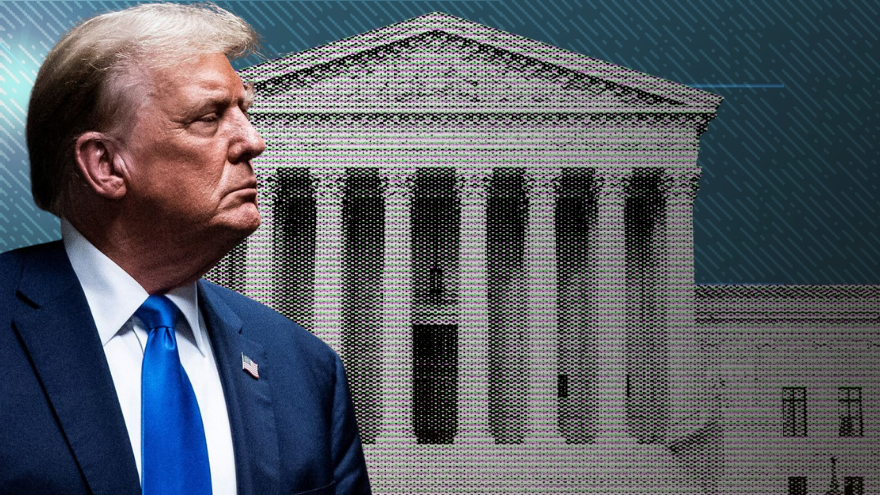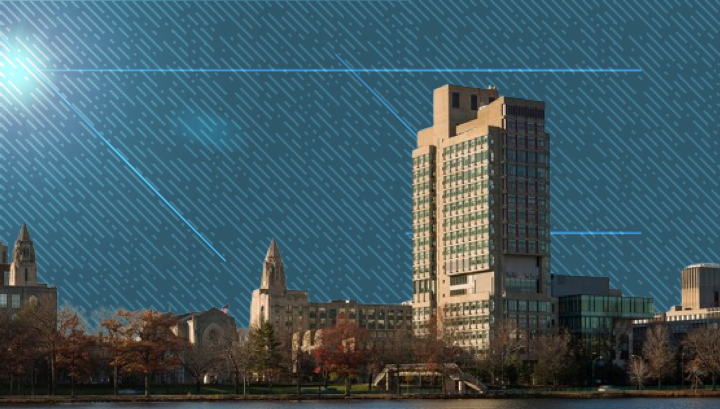The Supreme Court heard oral arguments regarding the boundaries and nuances of presidential immunity central to the election interference case against former President Donald Trump.
The justices pressed both Michael Dreeben, an attorney representing the special counsel, and John Sauer, an attorney representing Trump, to explain their interpretations of the boundaries of immunity. The arguments presented are the last that the nation's high court will hear as part of its current term.
Sauer told the court that, without presidential immunity, “there can be no presidency as we know it” during his opening argument.
The Supreme Court's ruling will determine if the case against Trump is thrown out or sent back to a lower court to differentiate between presidential and personal actions.
Special Counsel Jack Smith accused the former president of taking part in a scheme to prevent the transfer of presidential power following his loss during the 2020 election. Trump was charged with four criminal counts and pleaded not guilty. Smith attended the April 25 arguments.
“The Supreme Court has never before addressed whether a former president is immune from criminal prosecution, and the outcome of the legal battle will determine whether Smith's case heads to trial,” reports CBS News. “If Trump prevails, it would bring his federal prosecution in Washington to an end. But if the Supreme Court sides with the special counsel — who has succeeded before two lower courts — and the justices reject Trump's claims of broad immunity, proceedings in the case could resume.”
For three hours, the justices posed hypothetical scenarios to both attorneys to illuminate when and if a president is subject to criminal liabilities for official actions taken while in office. Can a person elected president be charged for taking a bribe in exchange for a diplomatic appointment? For leading a sit-in in Congress in objection to a piece of legislation that disrupts official proceedings? For ordering military action while no longer in office? For ordering the assassination of a political rival?
The justices and attorneys also referenced actions taken by former presidents, including drone attacks ordered by President Barrack Obama, actions taken by President John F. Kennedy as part of Operation Mongoose during the 1960s, and the internment of Japanese people and Japanese-Americans under President Franklin D. Roosevelt.
Sauer, a former federal prosecutor and a solicitor general of Missouri, began the debate over a complex issue. He argued that the threat of prosecution could “distort the president’s decision-making.
Justice Sonia Sotomayor seemed resistant to the concept of presidential immunity. She argued that “immunity says even if you did it for personal gain, [you] cannot be prosecuted.”
Justice Ketanji Brown Jackson also appeared to oppose the concept of immunity for presidents.
“If there’s no threat to criminal prosecution, what prevents the president from doing whatever he wants?” she asked. She suggested without potential prosecution, the Oval Office would be made the “center of criminality in this country.”
Sauer countered that presidents are still required to follow the law and that there has not been an expectation for the last 200 years that the White House would become the seat of criminal activity.
Dreeben, who argued on behalf of the federal government, has been a civil employee for over 30 years. He has appeared before the Supreme Court more than 100 times.
“Presidential immunity has no foundation in the Constitution,” said Dreeben, per USA Today. “The framers knew too well the danger of a king who could do no wrong.”
Chief Justice John Roberts pressed the government to explain if there were effective and established protections to prevent prosecutors from harassing or retaliating against the president. Dreeben said that prosecutions “in bad faith or for political animus” would be unconstitutional.
Justice Neil Gorsuch asked Dreeben to explain how a president’s motive when acting in his official capacity would impact immunity because anything a president does could be interpreted as an effort to secure reelection.
“We’re writing a rule for the ages,” Gorsuch said, stressing that this case could set future precedent.
Sauer opted not to offer a rebuttal after the federal government presented its argument.
Trump was not at the Supreme Court. Instead, he was in court in New York, where he was charged for his alleged involvement in a hush-money scheme.
“We have a big case today this judge isn't allowing me to go [to],” Trump told the media this morning. “We have a big case today at the Supreme Court on presidential immunity. A president has to have immunity. If you don't have immunity, you just have a ceremonial president."
Online, today's hearing was widely regarded as a critical moment amid intensifying political tensions. Biden DOJ lawyer admits to Supreme Court that their witch hunt is all about getting Trump: suggests no president has previously committed a prosecutable crime in office! Only Trump! President Trump can't attend oral arguments in his own Supreme Court case tomorrow because an activist judge is requiring him to be in New York.
— Tom Fitton (@TomFitton) April 25, 2024
This is a coordinated takedown attempt by the Left.
— Sen. Marsha Blackburn (@MarshaBlackburn) April 25, 2024
At the supreme court today donald trump’s lawyer is arguing trump could order the murder of his enemies in office if wanted. Really. pic.twitter.com/Ui8brl1f2A
— Bill Pascrell, Jr. 🇺🇸🇺🇦 (@BillPascrell) April 25, 2024
Gorsuch seems to suggest what is the most likely outcome. SCOTUS kicks this back to Chutkan to hold an evidentiary hearing to determine what elements of the 4-count indictment represent "official" acts v personal.
— Julie Kelly 🇺🇸 (@julie_kelly2) April 25, 2024

